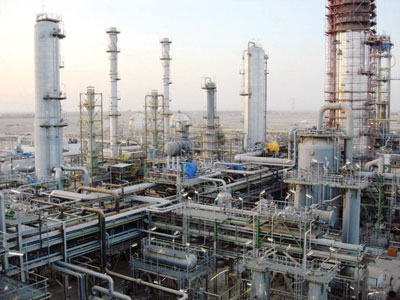The law of creating the Ministry of Industry is designed to modify the tasks entrusted to the ministry and converting it gradually to the Ministry of Industrial Policies, whereas the Director of Planning in the Ministry, Reem Hella Lee, confirmed that the draft law must contain the main tasks that the ministry will work on and map out the initial vision for this restructuring, noting that there is an initial draft was prepared in this regard.
“The draft law regulating the industry which aims to organize the process of granting licenses and industrial records and the process of control to develop a database for the industrial sector is ready and needs to be adopted by the ministry and the Chambers of Industry,” Ms. Hella Lee pointed out.
Ms. Hella Lee revealed the operational procedures that the Ministry of Industry is working on during the next phase such as “restructuring the industrial public sector where she indicated the presence of procedural matters that need to be followed as the reduction of the production cost, processing of waste and re-evaluation of all fixed assets and traded in the mother industrial companies which need to consultants and financial experts in this area.”
“It is necessary to hold meetings with the boards of the industrial establishments and follow the implementation of their production and investment plans and evaluate the performance of companies for the year 2012, subsequently necessary measures can be taken that could facilitate overcome some of the difficulties experienced by companies and institutions as well as launching a program to rehabilitate the Ministry of Industry in the event of adopting the descriptive form of ministry’s tasks which requires competent cadres in the light of the new tasks of the central directorates and cope with the new role of the ministry,” Ms. Hella Lee clarified.
The ministry, in its executive programs, didn’t forget following up the procedures for implementing the matrix of maximize the added values generated from the manufacture of sugar beet and discuss the possibility of starting the implement of what can be implemented within the available capabilities of this matrix and begin setting up a database of the industrial sector and linking it with the Directorate of Industry in Damascus and its countryside through a committee working in this area and is implementing a project of skills in the construction sector in cooperation with the Syrian Business Center.
Concerning a law, issued nearly two years ago, for protecting the growing industry but it is not activated, Ms. Hella Lee showed that this law needs to some procedures, citing the need to find a mechanism for linking scientific research with industry in cooperation with the Ministry of Higher Education, other scientific research bodies with the necessity of activating the Tests Center and Industrial Researches and mapping out an initial vision about the linking mechanism among the scientific research, Syrian universities, the Federation of Chambers of Industry and the Ministry of Industry.
Concerning industrial clusters, the executive programs confirmed the need to choose an industrial area from within the industrial zones which has been certified with the Regional Planning Commission to be a gathering for industrial textile in the governorates of Damascus and Aleppo, Ms. Hella Lee indicated the possibility of following-up of this project within the available capabilities with the industrial modernization project and the Directorate of Planning at the ministry.
“The ministry is currently pursuing the implementation of the program of supporting the infrastructure for quality which aims to create a system of work in a competitive environment capable of production and export most convenient and easiest ways in addition to the industrial modernization program, which seeks to rehabilitate a number of companies operating in the textile sector to upgrade this sector and reach to top added values that can be realized of this sector and the rehabilitation of eleven public company, including ten companies operating within the textile sector where the output of this project is expected to be the main base for the systematic reform process adopted by the ministry,” Ms. Hella Lee added.
The ministry, in coordination with the Regional Planning Commission, according to Hella Lee, conducted a strategy by adopting 25 industrial development zones depends essentially on the formation of industrial clusters within the governorates of the country according to the available resources in the approved areas.
Sh. Kh.

